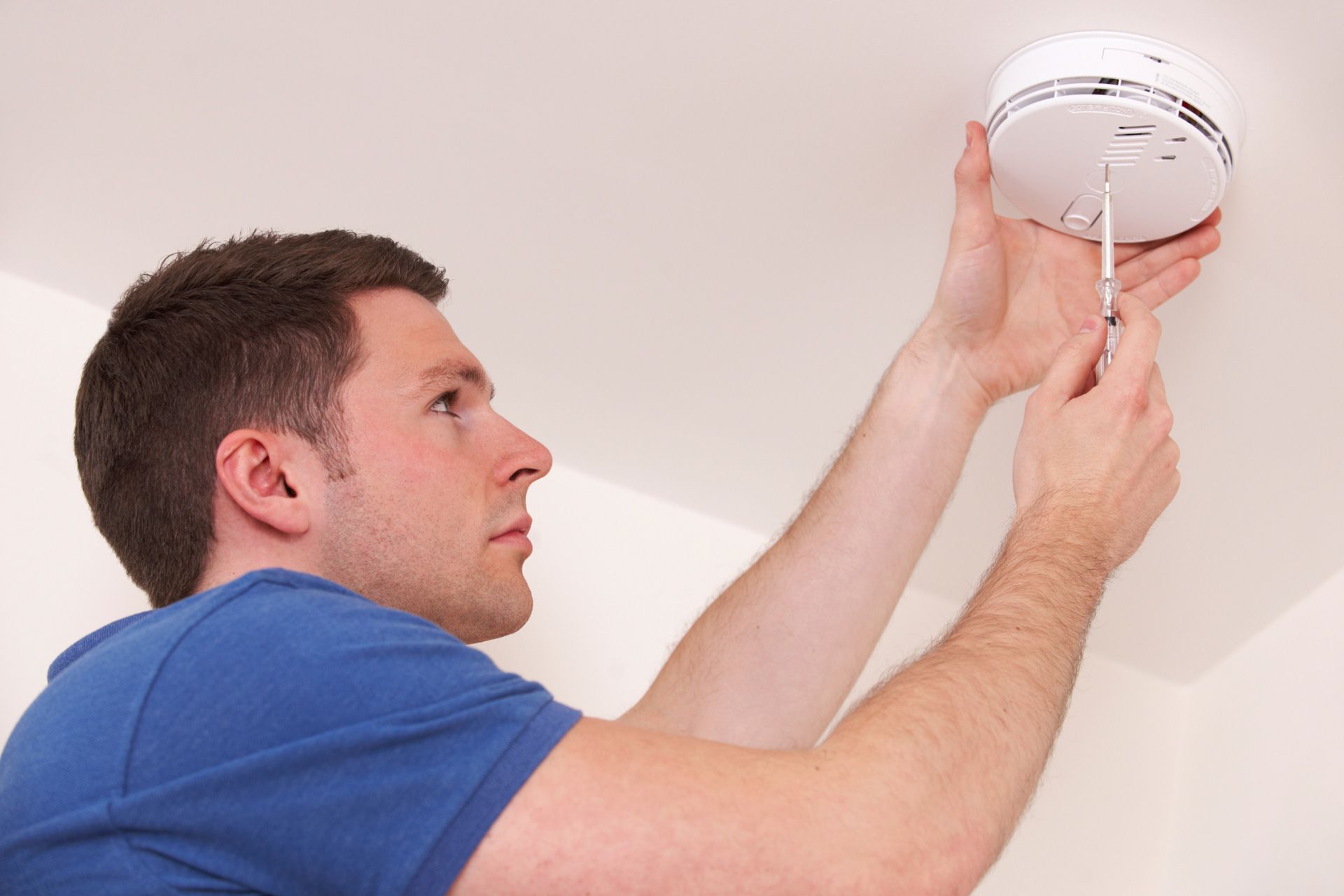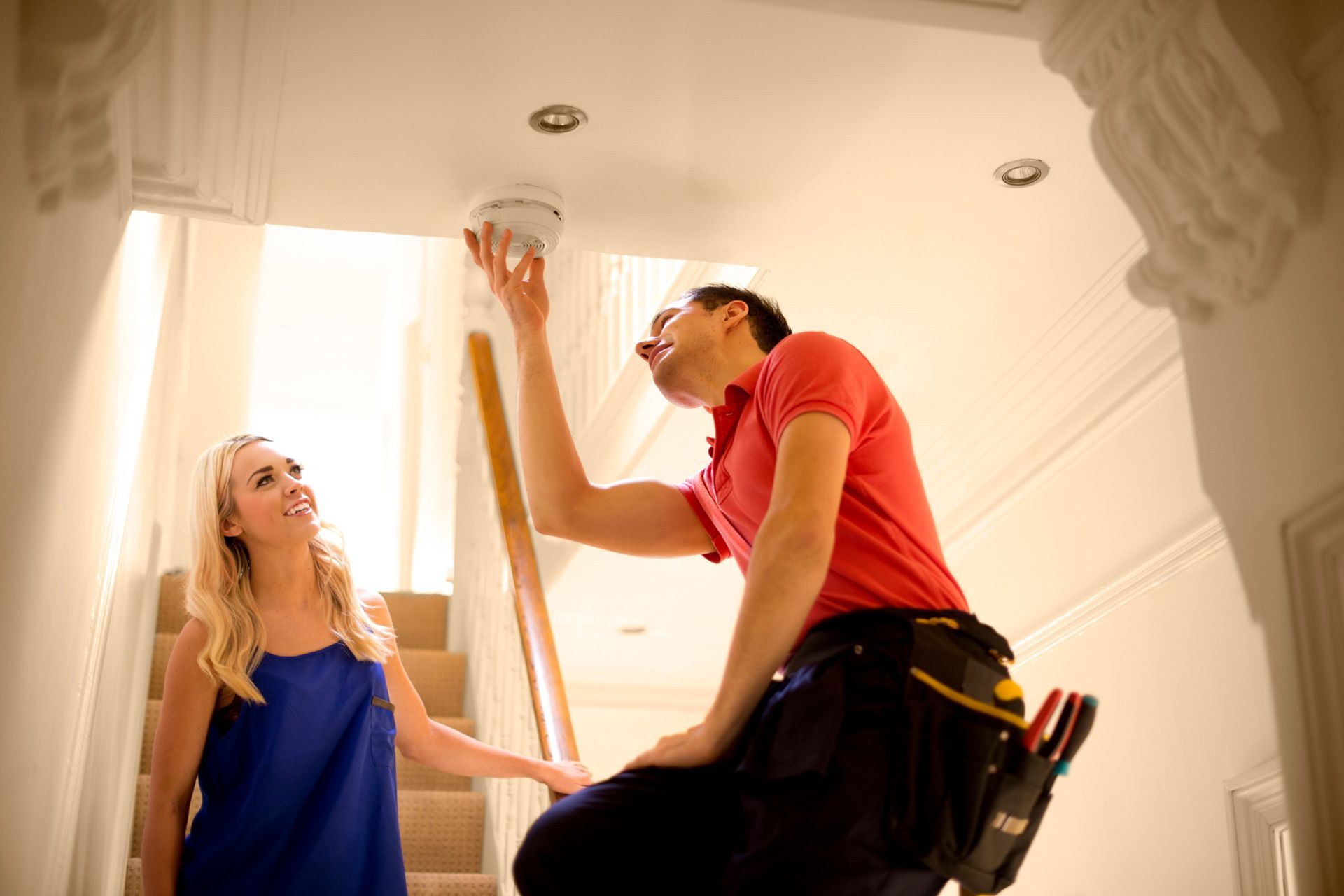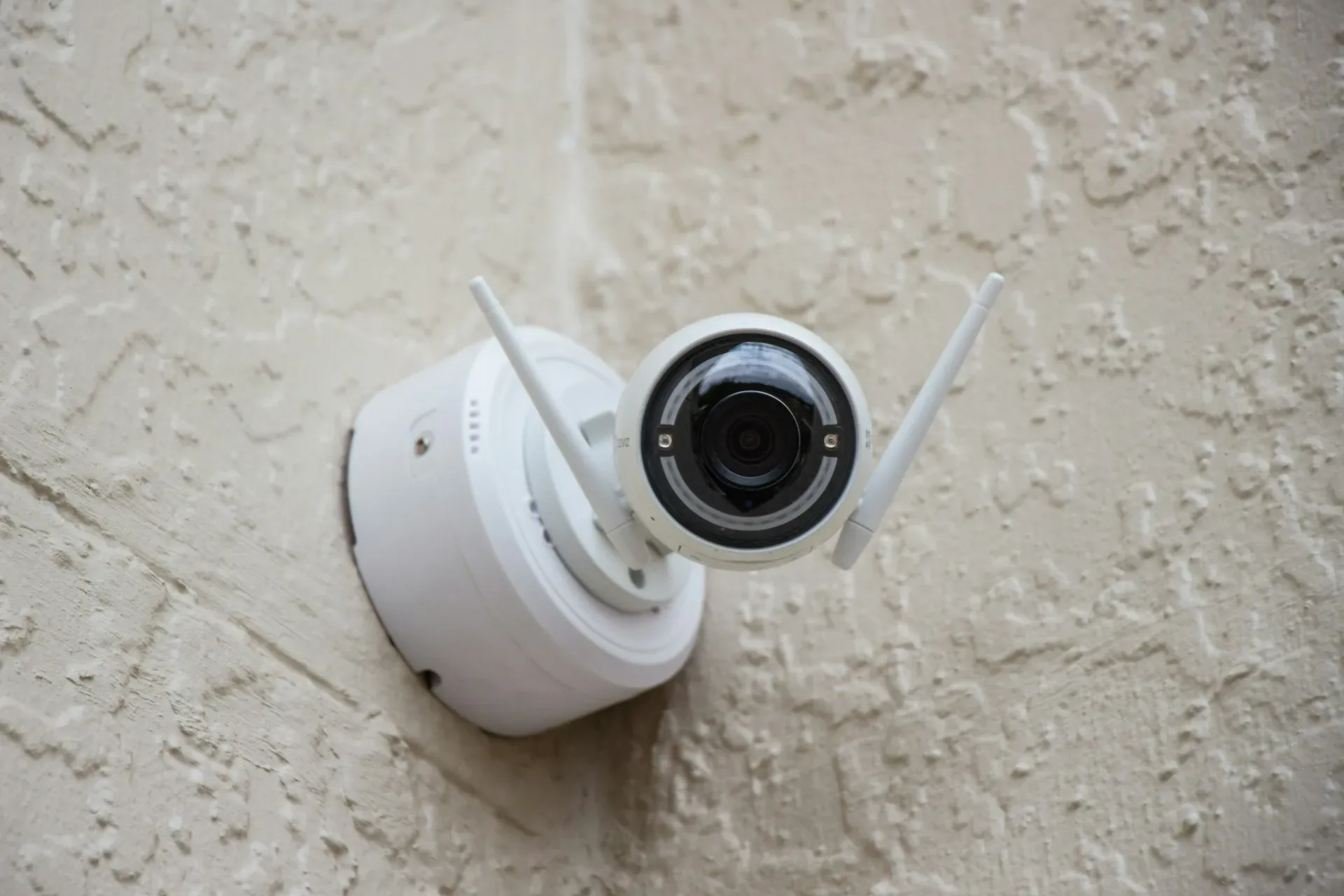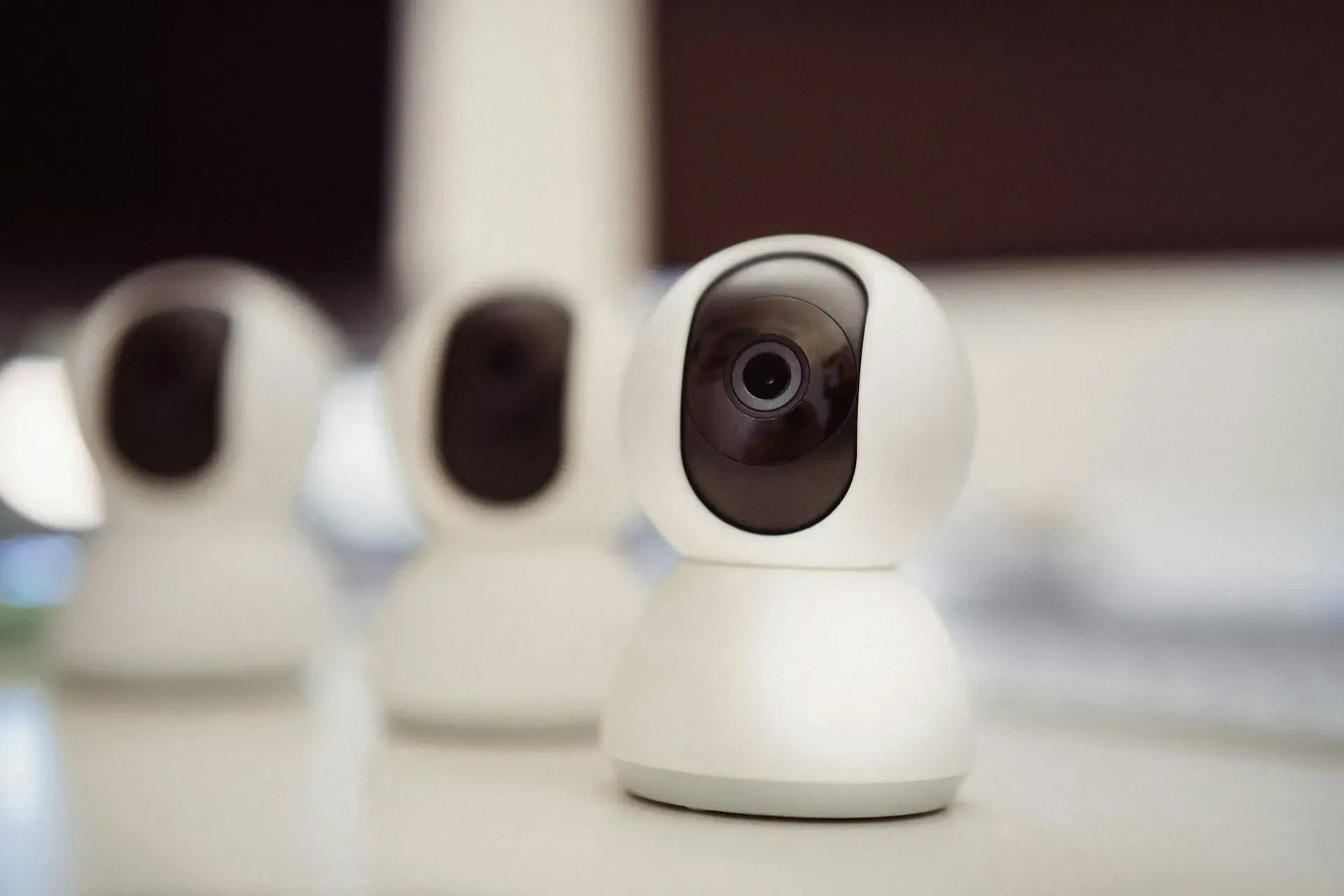Do Smoke Detectors Expire?
Smoke detectors expire after about 10 years, even hardwired ones. Check for a manufacture date on the device, and watch for signs like constant chirping or false alarms. Replace expired alarms to keep your home and family safe.
Did you know that most smoke detectors have an expiration date? Over time, their internal components, including the batteries, can degrade, reducing their effectiveness. If a smoke detector has expired, it may fail to alert you during an emergency, potentially putting your family’s safety at risk.
But when do smoke detectors expire? How can you tell? In this article, we'll explore how you’ll know when your smoke alarm needs to be replaced, and cover everything else you need to know about
smoke detectors as an Ontario homeowner.
How Long Do Smoke Detectors Last?
The answer to “How long do smoke detectors last?” is usually around 10 years. It's important to remember that these devices are constantly working, even when the alarm isn’t sounding. The sensors inside are always on, monitoring the air for smoke particles. Over time, these sensors can become less sensitive or even stop working altogether.
Other components inside the smoke detector, like the battery or the alarm itself, can also degrade over time, affecting smoke detector lifespan. This can lead to false alarms, or even worse, the detector failing to sound an alarm when there's a real fire. That's why it’s important to replace your smoke detectors before they reach the end of their lifespan.

Image Source: Canva
Signs Your Smoke Detector Lifespan is Running Out
Even if your smoke detector hasn't reached its 10-year expiration date, there are indications that it’s time for a replacement. Instead of wondering, “do smoke detectors expire?” pay attention to these warning signs:
- Frequent False Alarms: If your ULC-certified smoke detector goes off regularly without any smoke or fire present, it could be a sign that the sensor is malfunctioning. Dust, insects, or other debris could interfere with the sensor.
- No Alarm During Testing: If you test your smoke detectors monthly and the alarm doesn't sound, the unit is faulty and needs to be replaced immediately.
- Discolouration or Damage: If the smoke detector is yellowed, cracked, or otherwise damaged, it's likely no longer reliable. Physical damage can affect the internal components and compromise its ability to properly detect smoke.
- Chirping Sound: If you notice your hardwired smoke detector beeping, it could be a sign that the backup battery needs to be changed. If the battery has been replaced recently and the chirping continues, it could be a sign of a more serious problem with the detector.
If you notice any signs your smoke detector lifespan is about to run out, don't hesitate to replace your smoke alarm. It's a small investment for the safety that comes from
knowing your home is protected.

Do hardwired smoke detectors expire?
Regularly check the manufacture date. If your smoke detectors are nearing or have exceeded 10 years, replace them. A smoke detector is only effective if it works when you need it most.
Why do smoke detectors expire?
Smoke detectors expire because their internal sensors degrade over time, typically around 10 years. As these components wear out, the device becomes less effective at detecting smoke, increasing the risk of delayed alerts in the event of a fire.
Why is my smoke detector beeping?
A beeping smoke detector often signals a low battery. If replacing the battery doesn't stop the sound, the unit may be dirty, improperly installed, or nearing the end of its lifespan. Frequent chirping may also indicate the need for a full replacement.
Why does my fire alarm keep going off?
Dust can cause frequent false alarms, steam, cooking smoke, or a malfunctioning sensor. If your fire alarm is going off without cause, it may be time to clean it, move it farther from kitchen or bathroom areas, or replace it entirely.
How long are smoke detectors good for?
Smoke detectors are generally good for 10 years from the manufacture date, not the installation date. After this, their ability to detect smoke diminishes, and they should be replaced, even if they appear to work normally.
How to tell if your smoke detector is expired
Check the back or side of your smoke detector for a manufacture or expiration date. If it's over 10 years old or lacks a visible date, it's safest to replace it. Discolouration, frequent false alarms, or a failing test button are also warning signs.
How long are carbon monoxide detectors good for?
Carbon monoxide (CO) detectors typically last five to seven years. Like smoke detectors, they lose sensor effectiveness over time. Check for a manufacture or expiration date on the unit, and replace the detector if it begins chirping or reaches the end of its lifespan.
How to Check Smoke Alarm Expiry Date
Here are some helpful tips for checking your smoke alarm's expiry date to keep your home safe:
Look for a Label or Stamp
Most smoke alarms have a manufacture date or expiration date printed on the back of the unit, inside the battery compartment, or sometimes on the side edge. You’ll need to take it off the ceiling or wall to see the label.
Know the Lifespan
Smoke alarms typically expire 10 years after the manufacture date, not the date you installed it. If it says "Manufactured: July 2015," replace it in July 2025, even if it seems to be working fine.
Check Monthly, Replace if Needed
Press the test button monthly to make sure it’s working. If there’s no label or the print is worn off, it’s safest to assume it’s expired and replace it immediately.
Use a Marker
After installing a new one, write the install date with a permanent marker on the side to make future checks easier.
Set a Calendar Reminder
Use your phone or smart home app to set a recurring reminder for:
- Monthly testing
- Annual battery changes (for 9V models)
- 10-year replacement
Ontario Laws on Smoke Alarms
The Ontario government recognizes that smoke alarm systems are necessary for safe and protected homes. To ensure smoke detectors are properly deployed in Ontario, the government has passed laws concerning the responsibility of homeowners, property managers, and businesses.
The Ontario Fire Code
The
Ontario Fire Code
establishes clear and specific regulations governing the installation and upkeep of interconnected smoke alarms in all residences. The Fire Code outlines several key provisions regarding smoke alarms:
- Every Storey:
Each level of your home, including basements and attics, must have a working smoke alarm installed. This ensures comprehensive coverage throughout your property.
- Sleeping Areas: It’s required to install smoke alarms outside all sleeping areas to provide early warning in case of a fire during the night when occupants are most vulnerable.
- Homeowner Responsibility:
As a homeowner, you are legally responsible for ensuring all smoke alarms in your home are functional. This includes regular testing, battery replacement, and timely replacement of the entire unit when the end of the smoke detector lifespan is reached.
- Landlord Responsibility:
Landlords are legally obligated to ensure their rental units are equipped with operational smoke alarms at the start of each new tenancy. They must replace smoke detectors when they reach their expiration date.
- Tenant Responsibility: Tenants must promptly inform their landlord of malfunctioning smoke alarms and replace batteries as needed, especially if they hear the smoke detector chirping without battery issues.
Penalties for Non-Compliance
Failure to comply with these regulations, especially when it comes to smoke alarm placement and smoke detector lifespan, can lead to serious consequences. In addition to fines and potential legal action, non-compliance puts lives at risk. In the event of a fire, a non-functional or absent smoke alarm significantly increases the risk of injury or fatality.
Prioritize Fire Safety with PasWord Protection
"Do smoke detectors expire?" is a crucial question every homeowner should ask. With PasWord Protection, you don't have to worry about the answer. We understand the importance of fire safety and offer comprehensive solutions to protect your home and loved ones.
Our monitored security systems include ULC-certified smoke detectors, ensuring the highest reliability and responsiveness. In the event of a fire, our 24/7 monitoring center will immediately dispatch emergency services, even if you're not home.
Don't wait to protect your home!
Contact PasWord Protection today
to make a safer home for you and your family.






